
Abixim Drop
Manufacturer
Abia Pharmaceuticals Pvt. Ltd.
Salt Composition
Cefixime (25mg)
Key Information
Short Description
Abixim Drop is an antibiotic medicine used to treat a wide range of bacterial infections in children.
Dosage Form
Oral Suspension
Introduction
Abixim Drop is best given an hour before or two hours after meals as that ensures better absorption. In case your child develops a stomach upset, prefer giving it with meals. The dose and duration depend upon the type and severity of the infection, so stick to the dose, time, and way prescribed by the doctor. If your child vomits within 30 minutes of the intake, give the same dose again but do not double the dose if it's the time for the next dose. Do not give this medicine to your child in case of cold and flu symptoms as they are usually caused by viruses and antibiotics don’t treat viral infections. Doctors prescribe this medicine for cough and cold only when they detect any underlying secondary bacterial infection.
Directions for Use
Take this medicine in the dose and duration as advised by your doctor. Check the label for directions before use. Measure it with a measuring cup and take it by mouth. Shake well before use. Abixim Drop may be taken with or without food but it is better to take it at a fixed time.
Safety Information
Side Effects
Vomiting Diarrhea Nausea Abdominal pain Allergy
Alcohol Warning
Consuming alcohol with Abixim Drop does not cause any harmful side effects.
Breastfeeding Warning
Abixim Drop is safe to use during breastfeeding. Human studies suggest that the drug does not pass into the breastmilk in a significant amount and is not harmful to the baby. Avoid prolonged use of Abixim Drop, since it may have possible effects such as rash and diarrhea.
Pregnancy Warning
Abixim Drop is generally considered safe to use during pregnancy. Animal studies have shown low or no adverse effects to the developing baby; however, there are limited human studies.
How it works
Abixim Drop is an antibiotic. It works by preventing the formation of the bacterial protective covering (cell wall) which is essential for the survival of the bacteria. By doing so, this medicine stops the infection-causing bacteria from growing further and prevents the infection from spreading without making them resistant to further treatment.
Quick Tips
Your child must complete the entire course of antibiotics. Stopping too soon may cause the bacteria to multiply again Give this medicine with food to avoid an upset stomach Encourage your child to drink plenty of water in case diarrhea develops as a side effect Conditions like common cold and flu are caused by viruses. Never use this medicine for such conditions Only give Abixim Drop to your child for their current infection. Never save medicine for future illnesses Stop this medicine and immediately report to your child's doctor in case your child develops an itchy rash, facial swelling, or breathing difficulties while taking this medicine.
Related Medicines
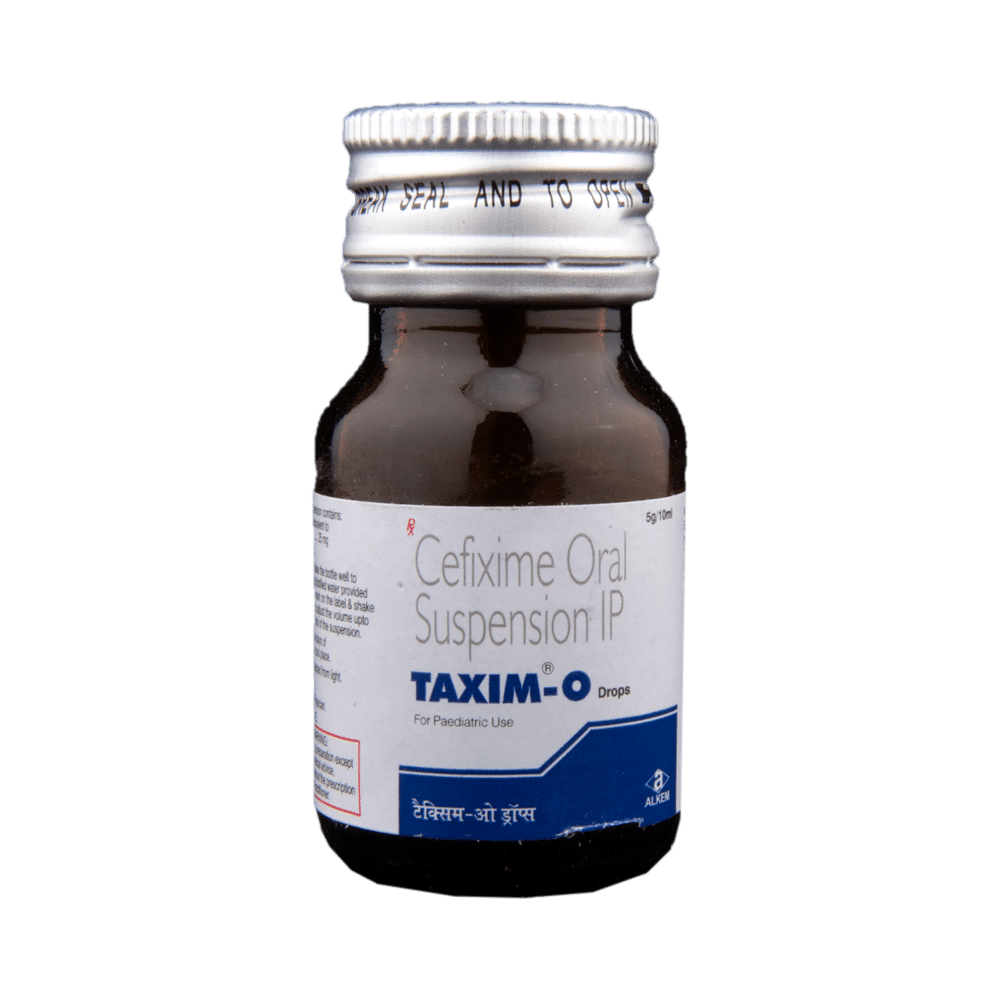
Taxim-O Drop
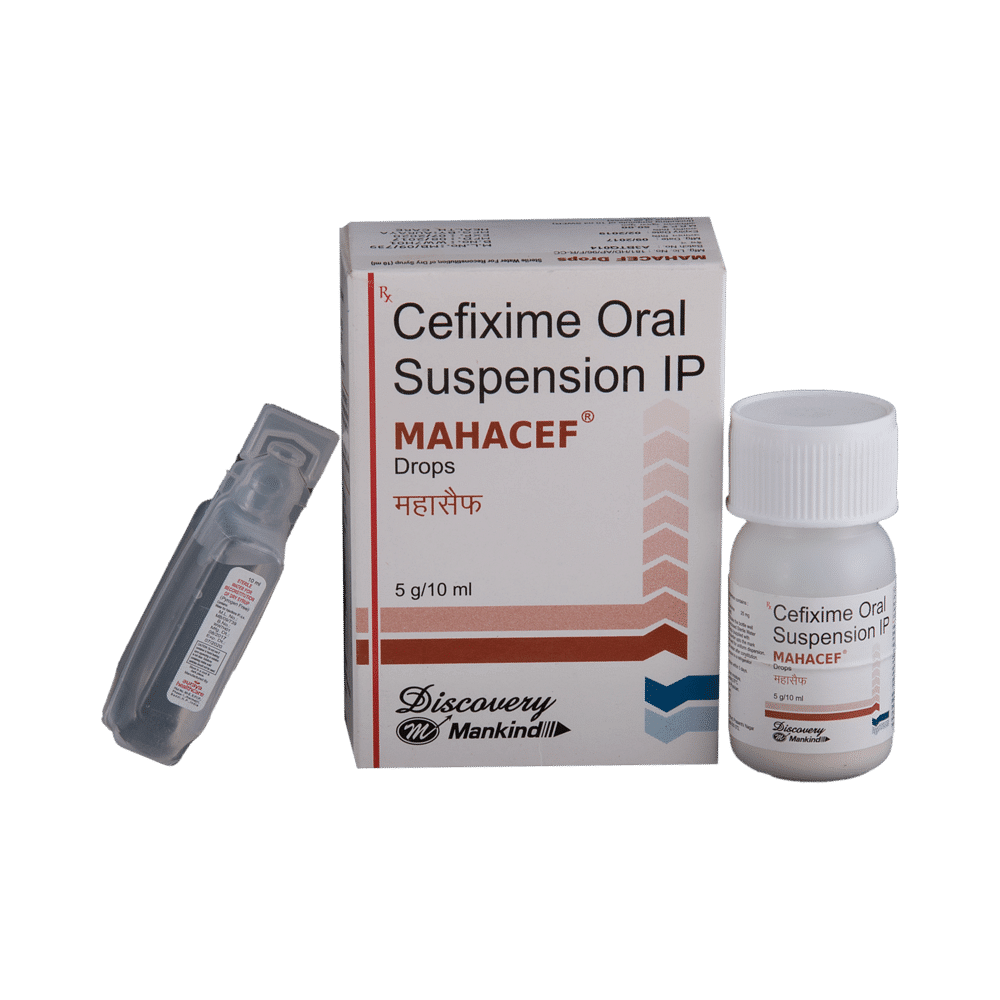
Mahacef Drop
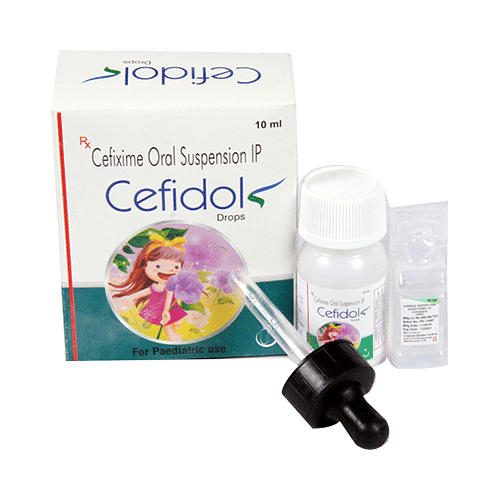
Cefidol Oral Drops

Trixon 25mg Oral Suspension

Trixon-O Drop
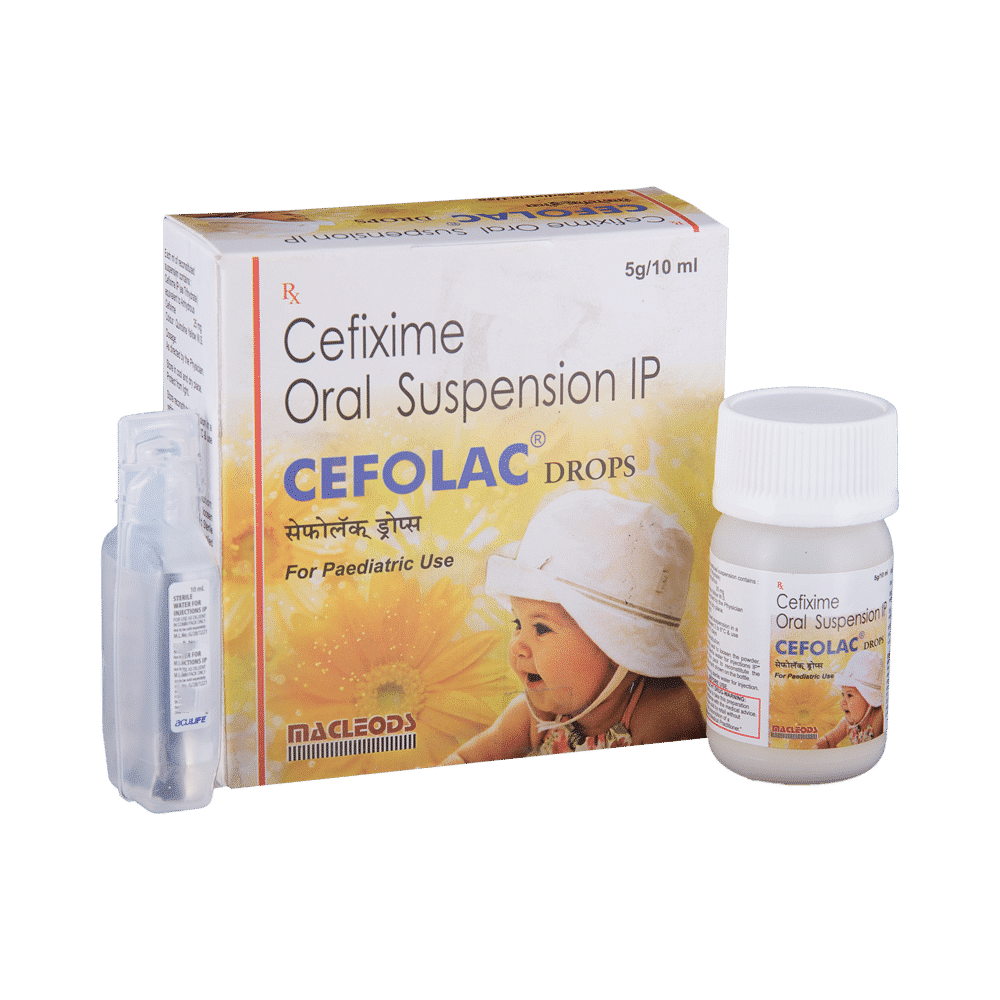
Cefolac Drop

Cefboss 25mg Oral Suspension

Ceffo Drop

Evicef Oral Drops
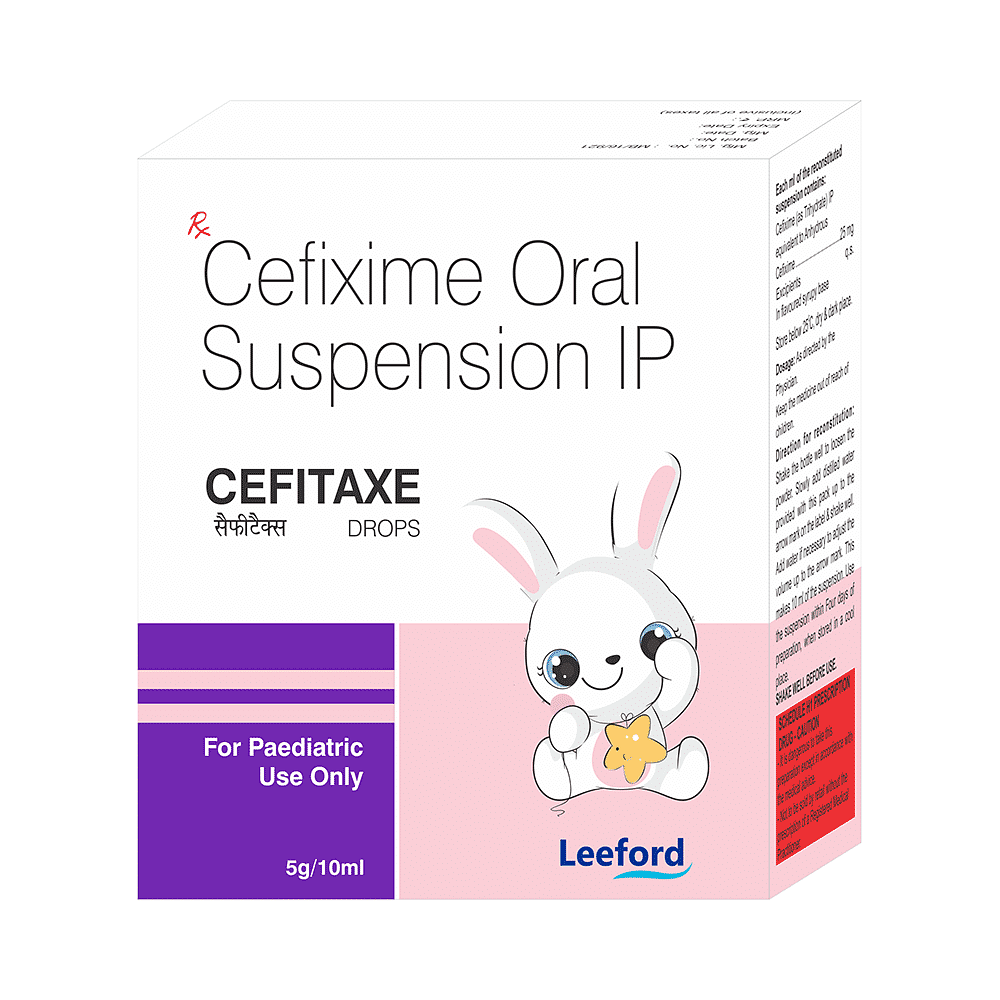
Cefitaxe Drop
Frequently asked questions
What if I give too much of Abixim Drop by mistake?
An extra dose of Abixim Drop is unlikely to do harm. However, if you think you have given too much of Abixim Drop to your child, immediately contact a doctor. Overdose may cause unwanted side effects and could worsen your child's condition.
Are there any possible serious side effects of Abixim Drop?
Some serious side effects of this medicine include persistent vomiting, kidney damage, allergic reactions (such as hives or swelling), diarrhea, and severe gastrointestinal infections. Always consult your child's doctor for help in such a situation.
Can other medicines be given at the same time as Abixim Drop?
Abixim Drop can sometimes interact with other medicines or substances. Tell your doctor about any other medicines your child is taking before starting Abixim Drop. Also, always check with your child's doctor before giving any medicine to your child.
Can I get my child vaccinated while on treatment with Abixim Drop?
Antibiotics usually do not interfere with the ingredients in vaccines or cause a bad reaction in a child who has just been vaccinated. However, children taking antibiotics should not get vaccinated until they recover from the illness. As soon as your child feels better, the vaccine can be given.
Which lab tests may my child undergo while taking Abixim Drop on a long-term basis?
The doctor may recommend getting kidney function tests and liver function tests periodically to monitor your child's condition.
The mucus coming out of my child’s nose is yellow-green. Is it a sign of a bacterial infection?
Yellow or green mucus in the nose does not mean that antibiotics are needed. During a common cold, it is normal for mucus to thicken and change from clear to yellow or green. Symptoms often last for 7-10 days.
My child is having a sore throat and ear infection. Can I give antibiotics?
No. More than 80% of sore throats and ear infections are caused by a virus and antibiotics are not given for viral infections. If your child has a sore throat, runny nose, a barky cough, pain, and discharge from the ear, it is most likely because of a virus. Consult your child's doctor to seek guidance.
Does a common cold caused by viruses always result in a secondary bacterial infection? When to start an antibiotic to prevent infection?
In most cases, bacterial infections do not follow viral infections. Using antibiotics to treat viral infections may instead lead to side effects without benefiting your child's health. Use antibiotics only after consulting with your child’s doctor.
Can Abixim Drop impact my child’s digestive system?
Children often have a sensitive stomach and develop stomach upset while taking antibiotics. When antibiotics are given, the good bacteria in their gastrointestinal tract may also take a hit too. Abixim Drop may kill off the good bacteria along with the bad, increasing the risk of developing other infections. If your child is having diarrhea while on Abixim Drop, do not stop the medicine course. Instead, call your child’s doctor to ask about the next steps. In some cases, the doctor may alter the dose.
Can Abixim Drop lead to bacterial resistance in my child?
Yes, irregular treatment, repeated use, and misuse of Abixim Drop can lead to resistance. Resistant bacteria are no longer killed by the antibiotics and may lead to reinfection.
How long should I take Abixim Drop?
Abixim Drop is usually prescribed for 7-14 days. You should take it for the full duration of your treatment as advised by your doctor.


